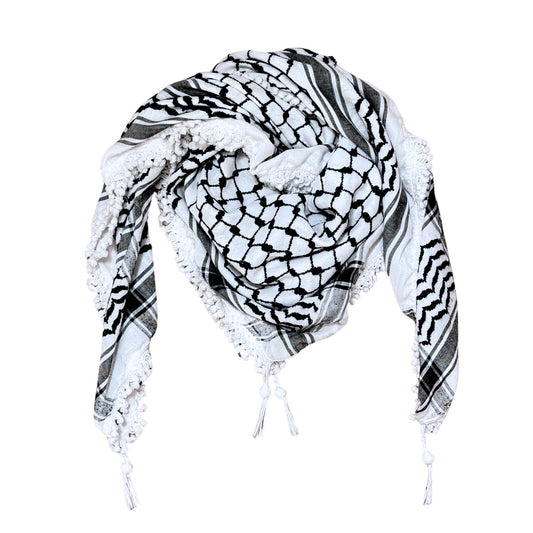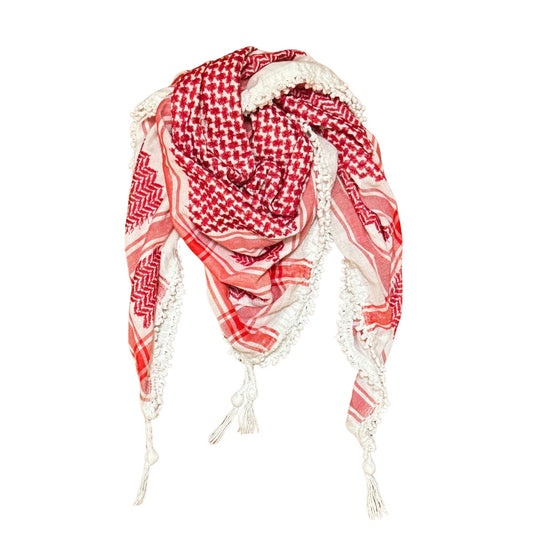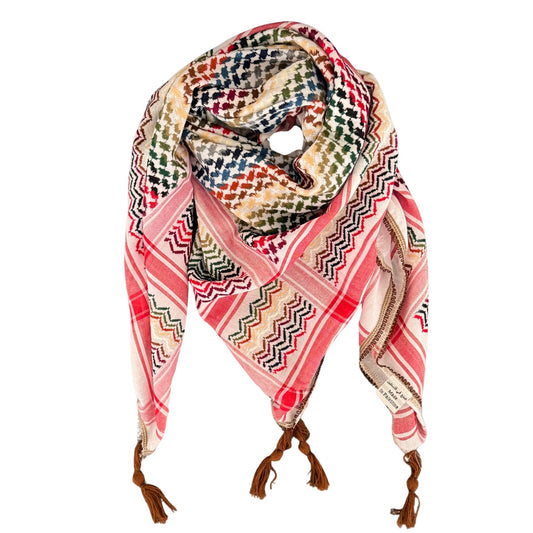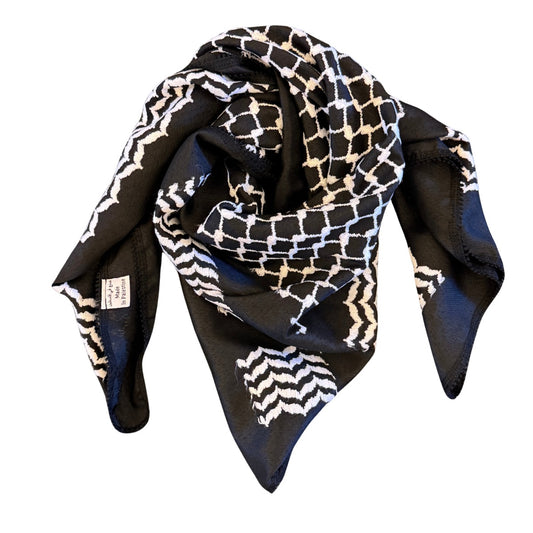Nablus Kufiya
Nablus Kufiya Factory is a Palestinian initiative that aims to support local manufacturers while supplying the demand for Palestinian heritage products, like the keffiyeh. The necessary threads for weaving their keffiyehs are all imported from nearby countries Jordan, Syria, and Italy. Once imported, the small team of six artisans spin the threads on traditional textile machines in local Palestinian factories and prepare them for distribution.
The traditional pattern of the Palestinian keffiyeh dates back thousands of years in the Mesopotamian region and has become a symbol of Palestinian solidarity and resilience. Each part of the pattern represents a different part of Palestinian culture; the fishnet pattern symbolizing the connection to the Mediterranean Sea, the olive leaves representing Palestinians economic significance and deep connection to land, and lastly, the bold lines that stand as a symbol of the trade routes of historic Palestine. Each aspect creates the beautiful design we all know and love, traditionally made in black and white, but extending to all kind of different colorways.

Prior to the Israeli invasion of Gaza in October 2023, most keffiyehs sold around the world were made in China and India. With the expansion of the solidarity movement in support of Palestinian resistance, the demand for keffiyehs made in Palestine has greatly increased. Today Nablus Kufiya is one of two factories producing keffiyehs in Palestine.
Nablus has a rich history, known not only for their textiles, but also their kunafa, soap, and bustling markets. Nablus lies in the Old City and is filled with its one-of-a-kind architecture, narrow streets, and distinct stone facades. In a city that beautifully reflects the intricacy of Palestinian history and culture, it only makes sense that one of the most universally recognized symbols of Palestinian solidarity can be found in Nablus.






